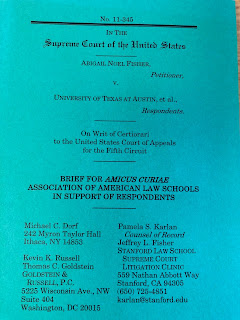What We Learn From the Ugly Dual Loyalty Slander Against Lt. Col. Vindman
by Michael C. Dorf Donald Trump's tweet in response to the testimony of Lieutenant Colonel Alexander S. Vindman on Tuesday was despicable; yet remarkably, it was not nearly as outrageous as comments by Trump-friendly talking heads. Below I'll connect the smear by former Congressman Sean Duffy, FoxNews host Brian Kilmeade and others to controversy over statements by Congresswoman Ilhan Omar as well as to the nature of partisanship in our current era.
